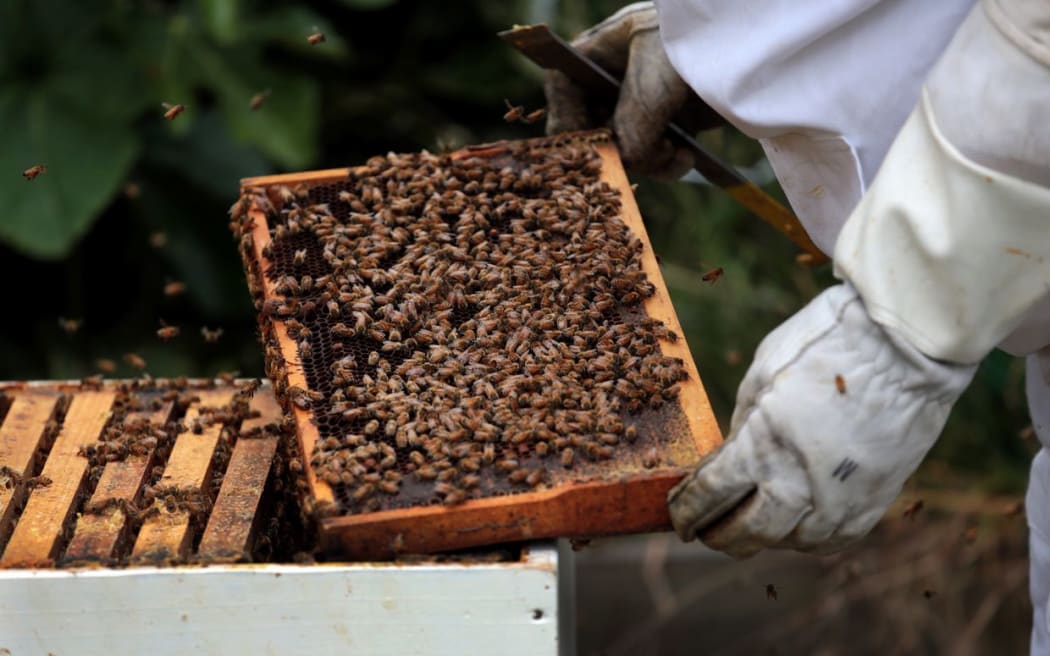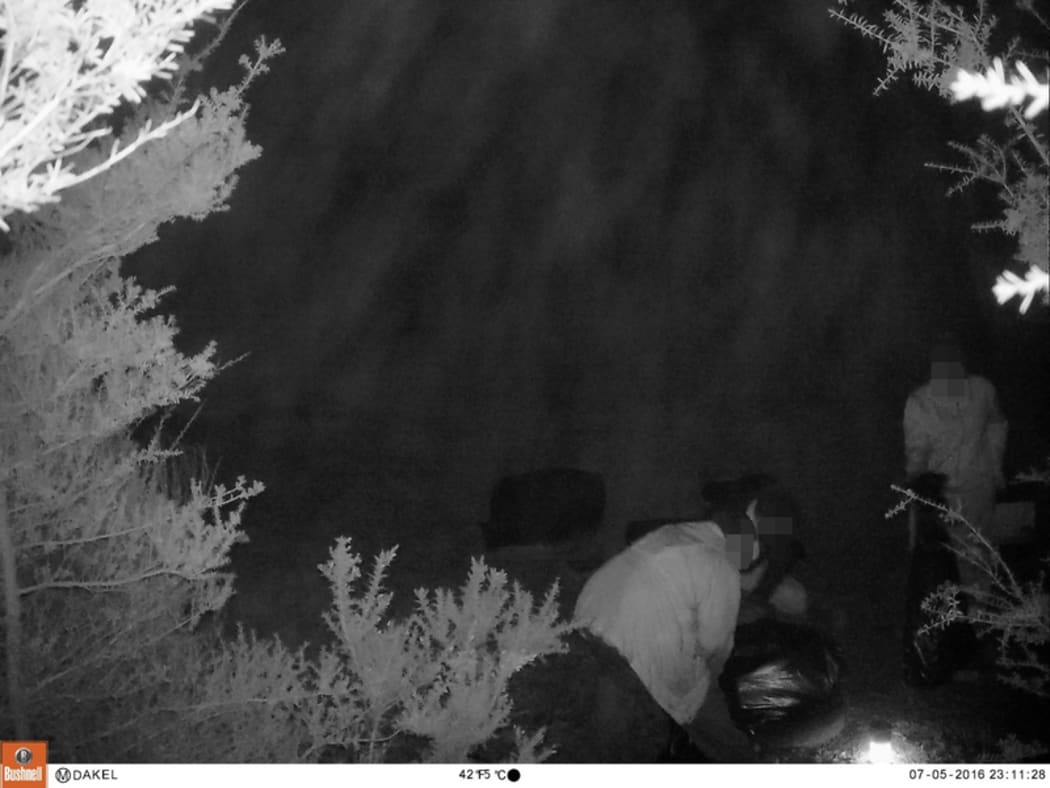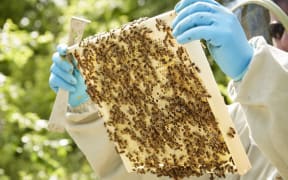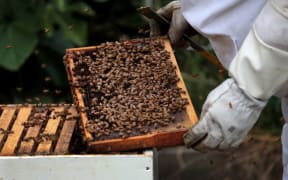A Northland beekeeper who says he had hundreds of hives poisoned earlier this year says there have been more hive thefts and dodgy activity in the industry - and police aren't taking it seriously.

Daykel Apiaries owner David Yanke is upset at what he says is a series of attacks against him and his business. Photo: RNZ / Diego Opatowski
David Yanke, who owns Daykel Apiaries, said he had lost over 400 hives to suspected poisoning, numerous other hives stolen and his gates rammed.
When he put roadside signs up near the company's property in Taipa, showing that it was a commercial queen-breeding operation, they were pulled out and knocked over.
A police spokesperson said they had received a number of reports from Mr Yanke of beehive poisoning.
"These claims have been thoroughly investigated and, to date, no evidence of poisoning has been found. Therefore, it was considered there was insufficient evidence to take the matter further.
"Police take all reports of this nature seriously and investigate on a case-by-case basis as appropriate."
Mr Yanke said the police response was infuriating.
"We made one initial report on the day that we discovered the poisoning and a constable visited the two worst sites, but he never took any pictures that day. That was the only site visit that they made regarding the poisoning."
The hive thefts and gate ramming had happened since then, he said.

A screengrab of surveillance footage that Mr Yanke says shows people taking hives. Photo: Supplied
"To our knowledge, they [police] haven't investigated it at all. When we've talked to them further, they've never done anything and any new evidence that we think we have they always dismiss it as hearsay or it's not good enough to proceed with.
"They have done nothing with MPI [Ministry for Primary Industries] and AsureQuality - no one has ever come out to visit or to take samples. We've been left to take all the samples ourselves."
Mr Yanke said MPI had been helping him track down which toxin killed his bees, but two of the four suspected toxins couldn't be tested without going to huge expense.
"For the police to say that they've 'investigated it thoroughly' when they have done nothing to actually try and get to the bottom of it is very unfair."
Mr Yanke said the real problem was the amount of crime within the bee industry.
"The police literally just put it down as another beekeeper dispute. I accept that they're probably getting complaints from beekeepers constantly and it's probably just a bit overwhelming for them.
"This is a bit more than a little dispute. With the extent of damage, more should have been done."
'Relentless' attacks
Mr Yanke said he had more hives stolen this week and felt targeted by relentless attacks.
"We had hives stolen from behind a locked gate and then, two weeks later, that same gate was rammed. It's been a stressful year, I must say."
Other beekeepers also had stories of bad things happening to them, whether it was hive theft, trashing of hives or poisoning, he said.
"I know of five other friends and local beekeepers who have had hives stolen in recent times, and another friend who had a yard of 40 hives poisoned and killed, but it was a flyspray attack."
Mr Yanke said he has kept bees for 30 years in Taipa without any issues, but in the past two years the industry had gone crazy over manuka honey, leading to competition and crime.




